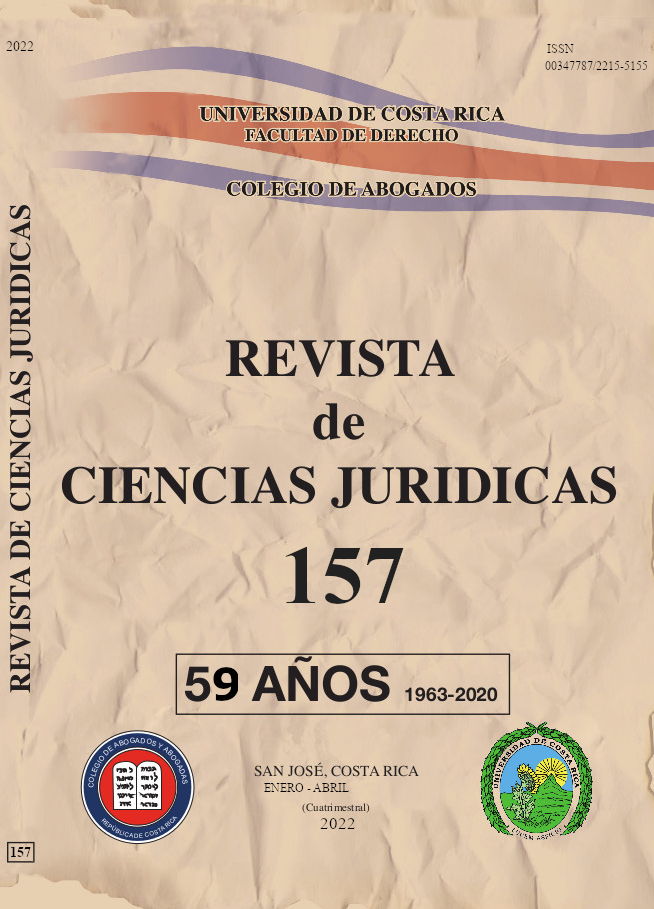Abstract
In this research article, the authors carry out a historical-legal study of the main agrarian public policies enacted by the Costa Rican State from 1821 to the present. The analysis is carried out through the study of the main legal norms of different rank issued by the State, seeking to determine ends and objetives and interests of the different sectors of society of each era. Additionally, the effects and impact of these policies on the agrarian and rural reality of the country are evaluated. The conclusions summarize some of main lessons that the country has learned or should attend to from the road traveled 200 years after independence and some future trends.

